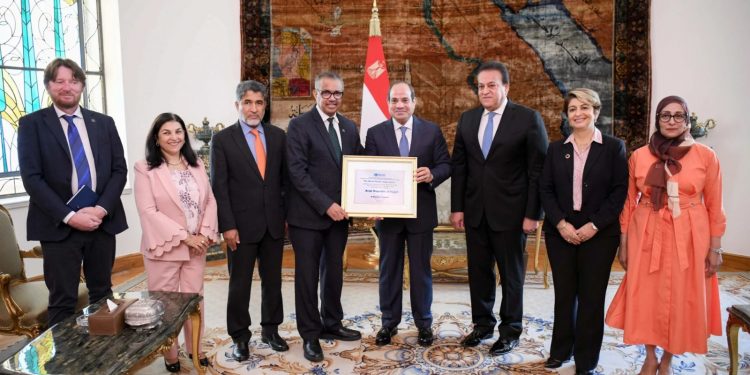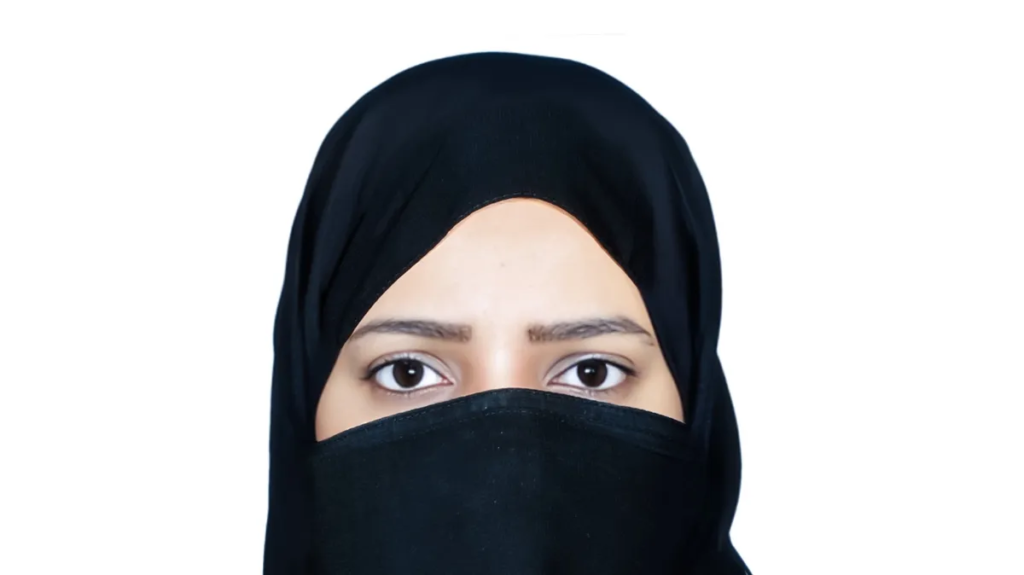The World Health Organisation (WHO) recently awarded Egypt the Gold Level certificate for eliminating hepatitis C, a chronic viral infection that affects millions of people worldwide.
Egypt is the first country in the world to receive this certification, after reducing its infection rate from 14.7 per cent in 2015 to less than 1 per cent in 2021.
The certificate was presented to President Abdel Fattah El Sisi by WHO director general Tedros Adhanom Ghebreyesus on October 9.
Ghebreyesus praised Egypt’s success story, which he said was achieved in record time and could serve as a model for other countries. He attributed this achievement to the full commitment and personal follow-up of President Sisi, who launched ‘100 Million Healthy Lives’ presidential initiative to eliminate hepatitis C in 2018. The initiative involved establishing treatment centres, providing diagnostic tools, training staff, supporting local production of medicines, and offering free treatment to millions of citizens. The initiative also covered patients with complications of the disease, such as liver cirrhosis and cancer.
President Sisi thanked the WHO and its director general for their sincere support to Egypt’s health sector. He expressed his happiness with the improvement of the health of Egyptian citizens, who had long suffered from this disease.
The Gold level means that Egypt has met the criteria for reducing new infections and deaths caused by hepatitis C to the levels that qualify the country to eradicate the epidemic.
Ghebreyesus hailed Egypt’s remarkable progress, saying: “Egypt has transformed from a country with one of the highest rates of hepatitis infection to a country that has reached the path of eradicating the disease in less than 10 years. This is an amazing journey.”
He added that Egypt has provided the world with a role model for what can be achieved when adopting the latest tools and securing political commitment at the highest levels to use those tools to prevent infection and save lives.
“Egypt’s success should inspire us with hope and motivation to eliminate hepatitis C everywhere,” he concluded.
In 2018, some 63 million people were screened and treated, which is being studied globally, as it is a huge process that was crowned with success, and treatment was offered to those who were infected.
Less than 10 years ago, Egypt had one of the highest hepatitis C prevalence rates in the world. Left untreated, hepatitis C can cause liver disease and cancer, and premature death.
There is no vaccine for hepatitis C, but it can be cured with treatments that cost as little as $60 for an 8 to 12 week course.
Yet globally, 80 per cent of people living with hepatitis C remain undiagnosed, and almost 90 per cent remain untreated.
Egypt has showed the world that this should not be the case.
These achievements exceed the targets WHO has set for achieving gold tier status.
A key factor in the campaign’s success was using locally manufactured direct acting antiviral treatments.
Egypt also scaled up programmes on patient safety, injection safety, blood safety, and harm reduction for people who use drugs.
The WHO supported the Egyptian Health Ministry with technical guidelines and tools, providing a human-rights-based approach to hepatitis C diagnosis and treatment.
Egypt’s success in eliminating virus C is an example for the world of what is possible.
It is not the only health achievement of which Egypt should be proud. It follows Egypt’s validation last year for the elimination of rubella and measles.
The WHO notes with appreciation the ongoing commitment of the Ministry of Health and Population to sustain robust screening, care and treatment services for people with HCV. Since Egypt launched its nationwide campaign, the100 million healthy lives, over 60 million people have been screened and more than 4 million have received treatment. And by doing so, Egypt reduced the incidence of new infections from 300 per 100, 000 in 2014 to 9 per 100, 000 in 2022. This is very close to the ultimate goal of hepatitis C elimination of less than 5 per 100, 000 new cases per year and similar levels for viral hepatitis deaths.
“Egypt is an inspiration to many other countries who are working towards the elimination of hepatitis C, hepatitis B or mother to child transmission of hepatitis B. Similar achievements are within reach of many countries if they follow Egypt’s example – and use the tools available and assure political commitment,” said Dr Meg Doherty, WHO’s Director of Global HIV, Hepatitis and STI Programmes.
“However, we cannot be complacent as the work for Egypt and other countries is not over; they have achieved the gold tier status on the path to elimination for Hepatitis C, but will need to continue to sustain and step up efforts to reach the final destination of full elimination by the end of 2023. The WHO will be with Egypt every step of the way,”Doherty said in recent remarks.
There are five key elements, which contributed to Egypt’s successful HCV elimination programme. The first element is the sufficient and reliable epidemiologic data to quantify and monitor public health threats; while the second is a robust public health care infrastructure. The third element is inclusive care that reached all sectors of society. Political commitment to public health through increased health care spending and a comprehensive long-term national control strategy is the fourth, while the fifth factor is innovative scientific research and use of information technology.
Egypt has made significant efforts to strengthen hepatitis prevention since the early 1990s with programmes aimed at eliminating schistosomiasis, a parasite carried by water snails, which is mainly responsible for the disease, and to end the unhealthy practice of sharing or reusing needles and syringes resulting in the accidental transfer of infection.It also focused on harm prevention activities and on increasing public awareness.
Dr Ahmed Al-Mandhari, WHO Regional Director for the Eastern Mediterranean, praised Egypt’s unprecedented success, saying: “It is a testament that success is unstoppable when there is commitment, even when faced with daunting challenges and difficult times, including the Covid-19 pandemic and the subsequent global crises. With its commitment to eliminate hepatitis C, Egypt has succeeded in testing virtually the whole of the eligible population and has treated almost all those who are living with the virus. This represents one third of the 12 million people living with hepatitis C in the Eastern Mediterranean Region. This reflects the essence of our regional vision and the call for solidarity and action.”
According to the 2023 WHO Guidance for country validation of viral hepatitis elimination and path to elimination, countries can apply for full validation of gold, silver or bronze tiers on the path to elimination based on achieving relevant targets. Egypt is the first country that applied for validation and achieved gold tier status on the path to elimination, meaning that it is well on its way towards reaching all elimination targets before 2030.
source/content: egyptian-gazette.com (headline edited)
___________

_________
EGYPT



